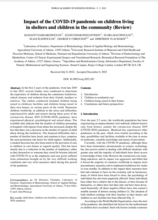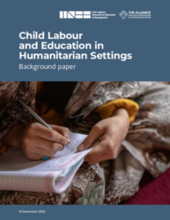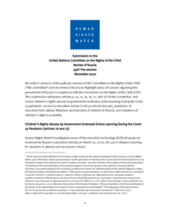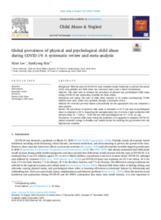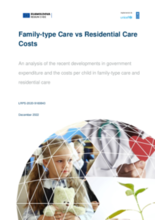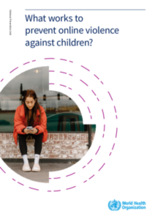Displaying 191 - 200 of 1343
This Family for Every Child webinar focuses on the use of creative therapies in supporting the mental health of vulnerable children and youth.
In this U.S.-based study, over 200 pre-adolescent children recently placed into out-of-home care were asked about the difficulty and helpfulness of placement and how their lives might be different had they not been removed. The same participants were interviewed 10 years later.
This article in the World Academy of Science Journal reviews some of the latest global studies on the impact of the COVID-19 pandemic on children in residential care and children living with their families.
This is a recording of a UNICEF webinar presenting the launch of a global database of children in residential care on December 14, 2022.
Related content:
This paper attempts to highlight some of the key issues regarding child labour and education in emergencies.
This is Human Rights Watch's submission to the United Nations Committee on the Rights of the Child's 94th pre-session to highlight areas of concern regarding the government of Russia’s compliance with the Convention on the Rights of the Child (CRC).
This video by the Alliance for for Child Protection in Humanitarian Action details the three levels of prevention in child protection in humanitarian action.
The goal of this global study was to first identify the global prevalence of child abuse by country or region and second to identify the factors that influenced child abuse during the COVID-19 pandemic.
The objective of this analysis is to provide a better understanding of the government spending towards foster care and residential care services for children deprived of parental care, as well as to estimate the cost per child of such services. The analysis is intended to support UNICEF advocacy efforts towards the closure of residential care institutions in Moldova.
This World Health Organization report, "What works to prevent online violence against children", presents ways to address the growing worldwide concern of keeping children safe online, with a specific focus on two forms of online violence: child sexual abuse including grooming and sexual image abuse; and cyber aggression and harassment in the form of cyberbullying, cyberstalking, hacking and identity theft. The report recommends implementing school-based educational programmes that have multiple sessions, promote interaction among youth and engage parents.

